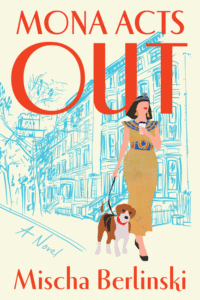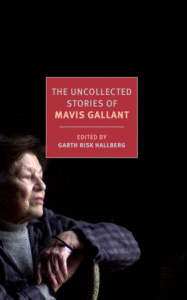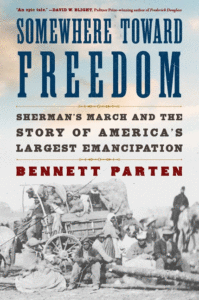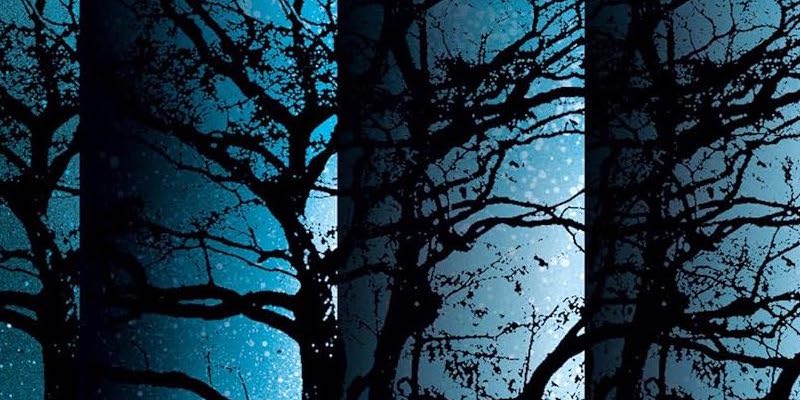
What Should You Read Next? Here Are the Best Reviewed Books of the Week
Featuring Han Kang, American Orphanhood, Mavis Gallant, and More
Han Kang’s We Do Not Part, Kristen Martin’s The Sun Won’t Come Out Tomorrow, and The Uncollected Stories of Mavis Gallant all feature among the best reviewed books of the week.
Brought to you by Book Marks, Lit Hub’s home for book reviews.
*
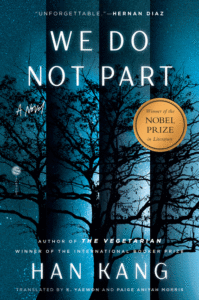
1. We Do Not Part by Han Kang, trans. by E Yaewon and Paige Aniyah Morris
(Hogarth)
7 Rave • 2 Positive • 1 Mixed
“Lushly poetic … While narratively the novel comprises just two voices, the memories and spirits of many thousands occupy its pages, and especially in its latter half, the voices feel as if they emanate from an almost ethereal plane of existence … [A] masterpiece.”
–Cory Oldweiler (The Boston Globe)
2. Mona Acts Out by Mischa Berlinski
(Liveright)
3 Rave • 1 Positive
“[A] psychologically acute, Shakespeare-steeped tale … Berlinski has an intricate understanding of the dynamics of predation, the psyches of performers and the culture of theater, particularly the grittier, convention-trampling downtown variety.”
–Laura Collins-Hughes (The New York Times Book Review)
3. The Uncollected Stories of Mavis Gallant
(New York Review of Books)
3 Rave
Read an essay on Mavis Gallant by Garth Risk Hallberg here
“Unforgettable … She can deliver top-line disgust, the existentialist’s moldy bread and butter, showing how life curdles when it seems to lack any sane form … With Gallant at the wheel, telling jokes over her shoulder, I enjoy being aesthetically carsick. The exhaust fuming off her pages, reeking of life’s absurdities and pathos, is invigorating. She blurs her reader’s sight, but in that blur are images of real, moving people.”
–Laurence Scott (The New York Times Book Review)
**
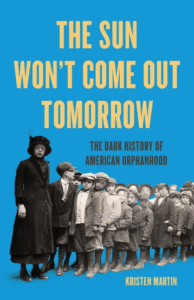
1. The Sun Won’t Come Out Tomorrow: The Dark History of American Orphanhood by Kristen Martin
(Bold Type Books)
1 Rave • 2 Positive • 1 Mixed
Read an excerpt from The Sun Won’t Come Out Tomorrow here
“Martin untangles imagined orphanhood from its severe and persistent reality … The history is sweeping, damning and infuriating … Martin’s book contributes to a cultural understanding in which orphanhood is neither manufactured, nor idealized, nor divorced from its dark history. Yet, it still carries an optimism that would make Orphan Annie proud — the hope that we might move beyond the fictional tropes and toward an accountability to American families that we have not yet achieved.”
–Gretchen Sisson (The Washington Post)
2. Somewhere Toward Freedom: Sherman’s March and the Story of America’s Largest Emancipation by Bennett Parten
(Simon & Schuster)
1 Rave • 1 Positive • 2 Mixed
“Parten persuasively argues that the refugee crisis played an unappreciated role in shaping that transition. Tragically, the march’s promise of freedom was largely truncated in the postwar era, and few of the refugees found the freedom they believed they were marching toward. What began as a military triumph ended as a civil-rights failure. This unique look at well-known historical events belongs in all history collections.”
–Kirk Johnson (Booklist)
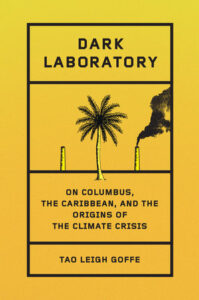
3. Dark Laboratory: On Columbus, the Caribbean, and the Origins of the Climate Crisis by Tao Leigh Goffe
(Doubleday)
3 Positive
“As interested in identifying the causes of the climate crisis as it is in offering a kind of alternative account of life in the wake of environmental apocalypse … Goffe’s narrative moves so rapidly among disciplines…that it’s easy to lose track of where or when we are in space and time … A noble and necessary, if at times unwieldy, example of what one such genre might look like, offering readers a novel account of post-colonial resistance, regeneration and survival.”
–Elizabeth Rush (The New York Times Book Review)
Book Marks
Visit Book Marks, Lit Hub's home for book reviews, at https://bookmarks.reviews/ or on social media at @bookmarksreads.










